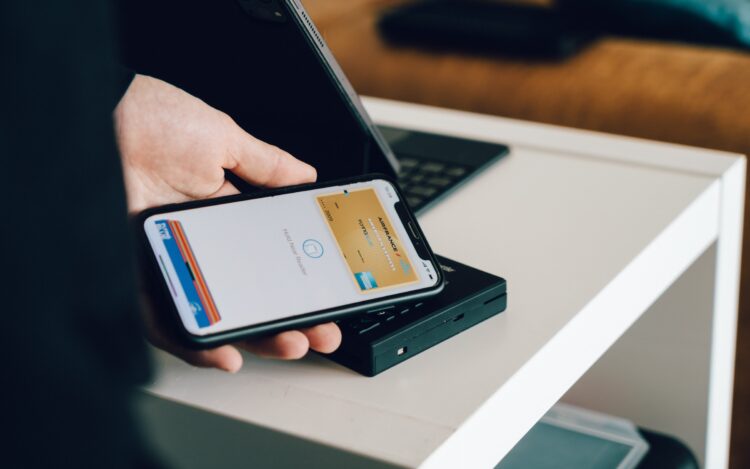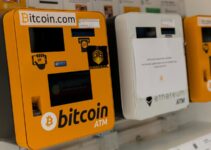Bitcoin prices have been all over the place recently. As more people get hooked on the idea of cryptocurrency investments, when the market price takes a dip, people clamor to get into the Bitcoin scene. Moreover, with experts like Elon Musk practically endorsing crypto coins, it is no wonder that everyone wants a bit of the proverbial cryptocurrency pie.
While more people are recognizing the pros of Bitcoin investments, hackers are utilizing the opportunity to exploit the less experienced investors. That’s right, all the folks new to the Bitcoin scene lack knowledge about the extensive ways in which they can lose their investment to phishing attacks and malicious software.
Here are a few ways in which you can secure your Bitcoins against online thefts. Understand that these are some basic tips to help you find your feet in the world of crypto. On the off chance that you have better ways to protect digital investments, do share with the rest of the world and make a quick buck while at it through Affdeals.com.
Page Contents
Ways To Protect Your Bitcoins
1. Pick a reliable e-wallet

img source: unsplash.com
This is a simple step that can make all the difference. Signing up with an e-wallet is a quick process and accessing them only requires a browser, username, and password. Especially for beginners, Bitcoin wallets hide the confusing technical aspects of digital investments, making the initial days so much easier.
Before getting started with your trade, make sure that your chosen wallet’s security is watertight. Many exchange platforms, even the most famous ones, are susceptible to attacks by malicious individuals, so choose platforms with adequate protection.
2. Importance of encryption
This cannot be emphasized enough — encrypt your wallet and the device on which you access the e-wallet or exchange platform. In short, encrypt everything involved with your Bitcoin trade. This is the most basic security measure that every Bitcoin investor should ensure.
Insufficient encryption leads to the easiest thefts. Using the same password for over ten devices and many more websites, especially social media platforms is practically lending a key to your Bitcoin wallet to the hackers. Thanks to this practice, those with malicious intentions can gather your data from other websites that you share your details with and make away with your funds.
While encrypting Bitcoin wallets, set complicated and strong passwords that are Alphanumeric in nature. Routinely switch around the passwords of all your devices and accounts to lower the risks of getting your passwords hacked. While making use of password managers, go for reliable ones (encrypt them too if you can) and only open your Bitcoin wallets on secured devices.
3. Spread the investments across secure locations

img source: unsplash.com
Storing all your funds in one spot means that a breach in the security of this site spells doom for your investments. Make sure that your funds and backups are not linked to a single location.
Instead, consider different locations on different media to reduce the impacts of any unfortunate event. Make use of paper wallets, physical dongles, USB keys, and even CDs.
4. Distribute the currency in small amounts
A mistake that most rookies in Bitcoin trade commit is to store their assets on the exchange platform itself or in a single e-wallet. Wallets serve the singular purpose of holding currency for immediate use. Keeping this in mind, use a Bitcoin wallet with only the required amount in it.
Store the rest in another wallet or device that is not connected to the internet for safety. Using multiple wallets with small amounts of cryptocurrency stored in them means that hackers will not be able to obtain all your crypto coins after a transaction.
Deactivating a wallet after an exchange has been done through it is a wise decision. Some software enables rewriting the information on a wallet before it is destroyed, thereby preventing any sensitive information from getting into the wrong hands.
5. Opt for 2FA or Multi-sig

img source: unsplash.com
The two-factor or multi-factor authentication system is a Bitcoin trader’s close friend. Enabling two-factor authentication means that you will still have access and control over the Bitcoin wallet if you get hacked. Unusual or suspicious activity is noted by your provider and will help you tackle them when you activate this security measure.
Enabling multiple signature systems before a transaction is mainly meant for organizations. Only if three or four out of five chosen people give their assent to the transaction can the process proceed. This means that the rest of the group gets notified as well if someone is trying to get away with your assets.
6. Backup and update software regularly
This is advice that is fairly simple to remember, regularly update the devices which contain your Bitcoin details. With regular updates, you will have the best firewall and antivirus versions guarding your account details. They will also support your system by taking down any bugs that present from time to time.
Set reminders on your devices if you need that extra nudge in the direction of regularly updating your gadgets. Another plus point of periodically updating your wallets and devices is that account recovery in case of system failures becomes easy.

img source: unsplash.com
Getting handsy with your Bitcoins through innocent-looking yet malicious links might be the smoothest crime ever. If you see any unknown links or links from unfamiliar sources, especially while using free WiFi networks, STAY AWAY.
Upon clicking them, the users are directed to unsafe websites from where hackers extract device details and can even render your devices useless. Make use of VPN even when you are using your home network for added security. Do not even consider accessing your wallets from shared devices or networks, no matter how urgent.
Conclusion
The internet is uncharted waters into which cybercriminals can escape without a trace. Getting your funds back is impossible once it is gone. Consider offline wallets such as hardware wallets or paper wallets for your Bitcoin savings. As absurd as it sounds to have offline keys for digital currency, it is one of the safest ways available currently.





